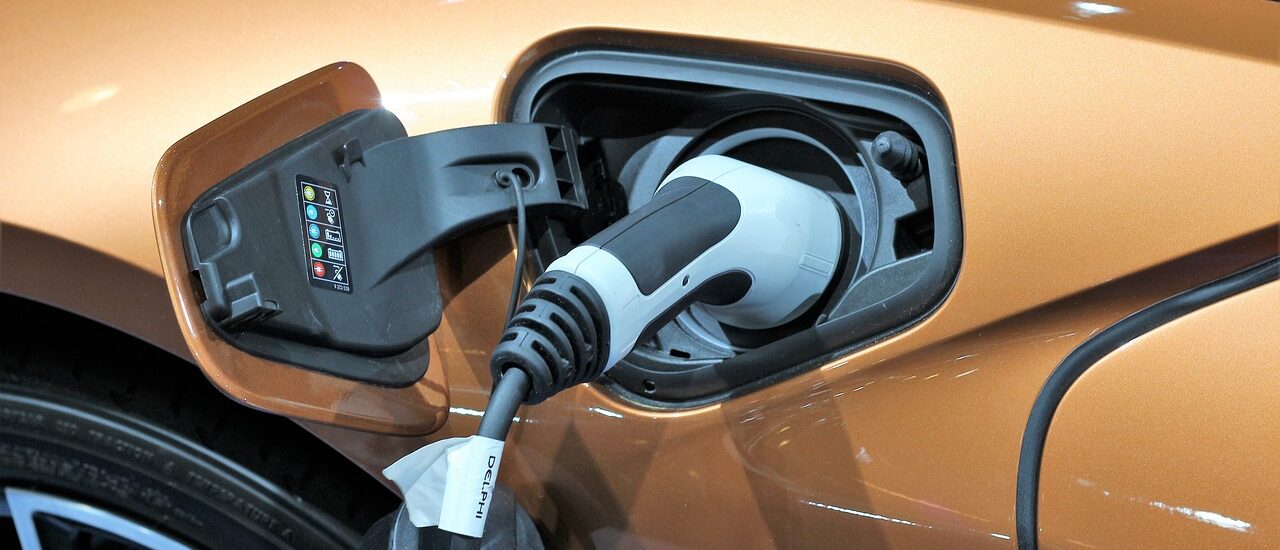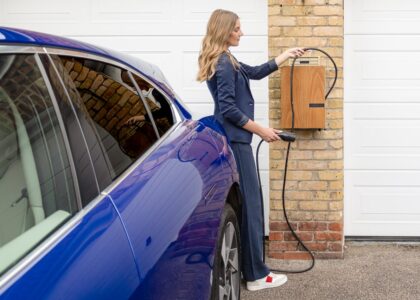As electric vehicles (EVs) continue to rise in popularity, more homeowners are considering the convenience of installing an EV charger at home. This guide will walk you through everything you need to know about choosing the right EV charger, understanding the installation process, and budgeting for the associated costs. With the right information, you can make an informed decision that meets your needs and fits your budget.
Why Install an EV Charger at Home?
Home EV chargers offer several benefits:
- Convenience: Charge your vehicle overnight and start each day with a full battery.
- Cost Savings: Home charging is often cheaper than public charging stations.
- Increased Property Value: An installed EV charger can add value to your home, appealing to future buyers.
Types of EV Chargers
There are three main types of EV chargers, known as Level 1, Level 2, and Level 3 (or DC Fast Chargers). Each type has its own set of features, benefits, and costs.
Level 1 Chargers
- Voltage: 120 volts (standard household outlet)
- Charging Speed: Adds 2-5 miles of range per hour
- Cost: Often included with the purchase of an EV
- Best For: Owners with low daily mileage and those who can leave their car plugged in overnight
Level 2 Chargers
- Voltage: 240 volts
- Charging Speed: Adds 10-60 miles of range per hour
- Cost: $500-$2,000 for the charger; installation can cost $500-$2,000
- Best For: Most homeowners, as it balances cost and charging speed effectively
Level 3 Chargers (DC Fast Chargers)
- Voltage: 400-900 volts
- Charging Speed: Adds 60-100 miles of range in 20 minutes
- Cost: $10,000-$50,000 (plus substantial installation costs)
- Best For: Commercial settings or specific residential areas with high power needs and adequate electrical infrastructure
Choosing the Right EV Charger
Selecting the right charger involves considering several factors:
- Daily Driving Habits: Assess your average daily mileage to determine the necessary charging speed.
- Electrical Capacity: Check your home’s electrical system capacity. A professional electrician can help determine if upgrades are needed.
- Location: Decide where you want to install the charger. This will affect installation complexity and cost.
- Budget: Factor in both the cost of the charger and the installation.
- Features: Look for smart charging features, such as Wi-Fi connectivity, app control, and energy usage monitoring.
Installation Process
The installation of an EV charger typically involves the following steps:
- Assessment: Hire a licensed electrician to evaluate your electrical system and provide a cost estimate.
- Permit: Obtain necessary permits from local authorities.
- Installation: The electrician will install a dedicated circuit and the charging unit.
- Inspection: A local inspector will verify that the installation meets all safety codes.
How Much Does an EV Charger Cost?
The cost of an EV charger can vary significantly based on several factors:
- Charger Type: As discussed, Level 1 chargers are the least expensive, while Level 3 chargers are the most expensive.
- Installation Complexity: Simple installations with an existing 240V outlet are cheaper. Complex installations requiring electrical upgrades or longer cable runs will increase costs.
- Permits and Inspections: Permits and inspections can add to the overall cost but are essential for ensuring safety and compliance with local regulations. Permit fees typically range from $50 to $200, depending on your location and the complexity of the installation.
Evaluating Installation Costs
When budgeting for an EV charger, it’s crucial to understand the full scope of installation costs. Basic installations, where a 240V outlet is already available, might only cost a few hundred dollars. However, more complex setups, such as those requiring a new electrical panel or significant wiring work, can push the cost into the thousands. It’s advisable to get multiple quotes from licensed electricians to compare prices and services.
Rebates and Incentives
To encourage the adoption of electric vehicles, many governments and utilities offer rebates and incentives for installing home EV chargers. These incentives can significantly reduce your overall costs. Check with your local utility company and government websites for the latest programs. Some states offer rebates up to $500 or more for home charger installations.
Long-Term Savings
While the initial cost of purchasing and installing an EV charger can be substantial, it’s important to consider the long-term savings. Charging at home is often cheaper than using public charging stations, especially if you can take advantage of off-peak electricity rates. Over time, these savings can offset the initial investment, making home charging a financially sound decision.
Environmental Impact
By installing an EV charger at home, you’re not only saving money but also contributing to a greener environment. Electric vehicles produce zero tailpipe emissions, which means less air pollution and a lower carbon footprint compared to traditional gasoline-powered cars. Home charging can also be paired with renewable energy sources, such as solar panels, further enhancing your environmental benefits.
Smart Chargers and Technology
Modern EV chargers come with a variety of smart features that can enhance your charging experience. Smart chargers can be controlled via smartphone apps, allowing you to schedule charging times to take advantage of lower electricity rates. They can also provide real-time data on your charging status, electricity usage, and even integrate with smart home systems for automated charging routines.
Future-Proofing Your Investment
When selecting an EV charger, it’s wise to consider future needs. If you plan to upgrade to a vehicle with a larger battery or add another electric vehicle to your household, a more powerful Level 2 charger may be a better investment. Additionally, chargers that support over-the-air firmware updates can stay current with the latest technology and compatibility standards.
Maintenance and Durability
Quality EV chargers are built to last, but regular maintenance can ensure they remain in top condition. Basic upkeep involves checking for any wear and tear on the cables and connectors and ensuring the unit remains clean and free from obstructions. Most chargers come with warranties ranging from one to three years, and purchasing from reputable brands can offer additional peace of mind regarding longevity and reliability.
Installation Tips
To get the most out of your EV charger, consider these installation tips:
- Location: Choose a location that is easily accessible and close to where you park your car. This will minimize the length of the charging cable and reduce potential tripping hazards.
- Weather Protection: If the charger will be installed outdoors, ensure it is weatherproof or protected from the elements.
- Cable Management: Install cable management solutions to keep the charging cable organized and avoid damage.
DIY vs. Professional Installation
While some handy homeowners might consider a DIY installation, it’s generally recommended to hire a professional electrician. Working with high-voltage electricity can be dangerous, and a professional will ensure the installation is safe, up to code, and optimized for performance. Additionally, professional installation might be required to qualify for certain rebates and warranties.
Additional Costs to Consider
In addition to the cost of the charger and its installation, there are other potential expenses to consider. For instance, if your home’s electrical system requires significant upgrades to handle the increased load of an EV charger, those upgrades can be costly. This might include installing a new electrical panel, upgrading your home’s wiring, or even adding a subpanel specifically for the charger.
Warranty and Support
When purchasing an EV charger, it’s important to consider the warranty and support offered by the manufacturer. A good warranty can provide peace of mind, covering the cost of repairs or replacements if something goes wrong. Additionally, consider the level of customer support provided. Some manufacturers offer excellent support services, including installation advice, troubleshooting assistance, and easy access to replacement parts.
Charging Station Etiquette
If you live in a multi-family dwelling or plan to share your charging station with others, it’s important to establish some basic etiquette. Clear communication about charging schedules can help avoid conflicts. Additionally, having a system in place to manage access, such as a reservation system or simple rules about unplugging fully charged vehicles, can ensure everyone gets fair use of the charger.
Future Trends in EV Charging
The EV charging industry is rapidly evolving, with new technologies and standards emerging all the time. For example, bi-directional chargers, which allow your EV to supply power back to your home or the grid, are becoming more common. Staying informed about these trends can help you make a future-proof investment. As battery technology improves and new charging solutions become available, the cost and efficiency of home charging are likely to improve as well.
Enhancing Your Home’s Value
Adding an EV charger can be a selling point for your home. As more people switch to electric vehicles, having a home charger can make your property more attractive to potential buyers. Highlighting this feature in your home’s listing can help you stand out in a competitive real estate market, especially as EV adoption continues to rise.
Integrating with Renewable Energy
If you’re committed to reducing your carbon footprint, consider integrating your EV charger with renewable energy sources. For example, pairing your charger with solar panels can provide a sustainable source of energy for your vehicle. This not only reduces your reliance on the grid but can also result in significant savings on your electricity bill.
Customizing Your Charging Experience
Many modern chargers offer customization options to enhance your charging experience. Features like adjustable power levels, customizable charging schedules, and energy consumption reports can help you optimize your charging habits and reduce costs. Exploring these options and setting up your charger to match your lifestyle can maximize the benefits of home charging.
Conclusion
Installing an EV charger at home is a smart investment that offers convenience, cost savings,




